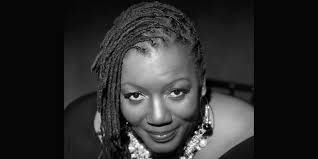#WaveCrushWednesday: Bernice L. McFadden

Acclaimed novelist Bernice L. McFadden shares her experience with Tulane students as a creative writing professor.
This week’s #WaveCrushWednesday is visiting Assistant Professor of Creative Writing Bernice L. McFadden. As an acclaimed novelist and self-proclaimed historian, McFadden is no stranger to rejection and inspiration, two recurring factors in her day-to-day life. She was chosen as this week’s #WaveCrush for her excellent service in the classroom and incredible work outside of it.
Do you have any upcoming projects?
I’m working on a novel titled “Praise Song for the Butterflies” about religious servitude in West Africa.
Is there any specific inspiration behind your writing or reason that you write?
I’ve been writing since I was nine. I was always a big reader. I knew at the age of nine that I wanted to write. I’m mostly inspired by history as it concerns black folk in this country, and personal family stories.
If you could attend a lecture given by anyone alive or dead, whose would it be?
I think if I had the opportunity to attend a lecture by Nelson Mandela [I would because] he’s such a huge figure for me. Where equality, love and respect of human kind is concerned, he stands out at the forefront of my mind. I would also like to sit in on a lecture by Dr. Martin Luther King. I’ve listened to a lot of his speeches; he’s very inspiring. I’ve had the privilege of sitting in on a lecture by Toni Morrison, but I could sit through a hundred more. And … Zora Neale Hurston — I’d like to have dinner with her.
What has been the most challenging obstacle that you have faced in your career thus far?
Sometimes in this industry it’s difficult being black and female for obvious reasons. I guess we all have the same challenges of being black and female in any industry. But because publishing is controlled by white males, sometimes its a bit difficult getting the attention that I think my work deserves. But I don’t let it keep me up at night. It’s a part of the game. I think that’s probably the most challenging thing I faced. I’ve gone to events, attended conferences, and had white men just pretend I’m not even there — white, male authors. So … I just smile. I think some people really take it personally, but because I spend so much time with my head in history books, I’m like, “Oh yeah, this is nothing new.” I’m not going to take it personally because it’s not me; it’s [them].
Do you have any advice for Tulane students interested in pursuing writing professionally?
Grow a thick skin. This territory comes along with a lot of rejection. But I think rejection builds self-esteem if you allow it to. I think it should be part of the process, because if you start at the top — if you send out that first query letter, you get an agent, you get a publisher, the book is published, you hit the New York Times, you win a Pulitzer — it’s all too easy. What’s going to happen when that second book doesn’t do as well? What’s going to happen to you emotionally? I always tell aspiring writers to welcome the criticism, to welcome the rejection, because it’s going to serve you down the line. So yeah, that would be it. Just write, write, read, read, and read, and write, and read. And build a thick skin to prepare yourself for the rejection.
http://www2.tulane.edu/liberal-arts/newsletter/new-faculty-spotlight-mcfadden-sept-2016.cfm
Your donation will support the student journalists of Tulane University. Your contribution will allow us to purchase equipment and cover our annual website hosting costs.



Leave a Comment